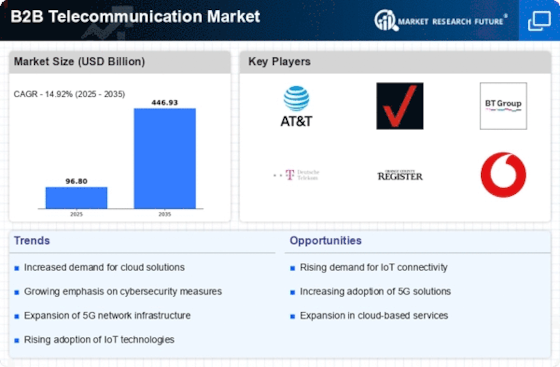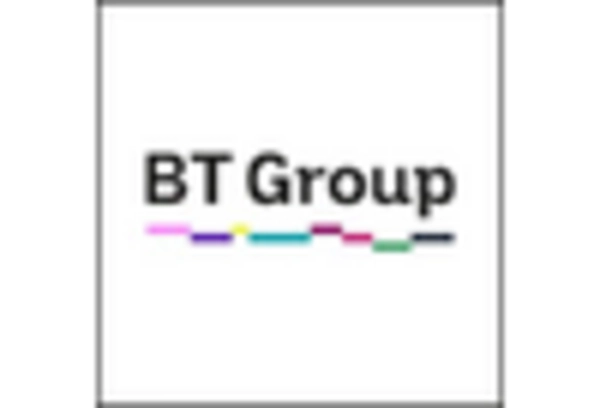Market Share
B2B Telecommunication Market Share Analysis
In the fiercely competitive B2B telecommunication market, market share positioning strategies play a crucial role in determining the success and longevity of telecom providers. One prevalent approach is differentiation through service innovation. Telecom companies strive to set themselves apart by introducing cutting-edge technologies and services that meet the specific needs of businesses. Whether it's offering advanced Unified Communications as a Service (UCaaS), leveraging the capabilities of 5G networks, or integrating Artificial Intelligence (AI) for enhanced communication tools, providers seek to create a unique value proposition that attracts businesses looking for state-of-the-art solutions. Another pivotal strategy involves pricing and packaging. Providers strategically design pricing models and service packages to appeal to various segments of the B2B market. This may involve offering tiered plans with different features, scalability options, and pricing structures. Some providers opt for competitive pricing to gain a larger market share quickly, while others position themselves as premium providers, emphasizing the superior quality and advanced features of their services. Strategic partnerships and alliances are increasingly becoming key elements in market share positioning within the B2B telecommunication sector. Telecom providers often collaborate with technology companies, software developers, or other businesses to create integrated solutions. By forming strategic alliances, providers can offer comprehensive and holistic services that address a wide range of B2B communication needs. These partnerships not only enhance service portfolios but also contribute to a broader market presence, as businesses benefit from the convenience of bundled, seamlessly integrated solutions. Acquisitions and mergers are impactful strategies employed by telecommunication companies to consolidate market share. By acquiring or merging with other companies, providers can expand their service offerings, geographic reach, and customer base. This consolidation strategy allows for economies of scale, operational efficiencies, and the ability to serve a more extensive and diverse clientele. Customer-centric approaches are gaining prominence as providers recognize the significance of customer satisfaction and loyalty in retaining and expanding market share. Offering excellent customer support, personalized service solutions, and actively seeking feedback are crucial elements of this strategy. Telecom providers that prioritize building strong relationships with their B2B clients not only retain existing business but also benefit from positive word-of-mouth recommendations, fostering organic growth in market share. Geographic expansion is a fundamental strategy for telecom providers seeking to increase their market share. This involves entering new markets or enhancing coverage in existing ones. By expanding their geographic footprint, providers can tap into untapped business opportunities, serve a broader range of industries, and mitigate risks associated with dependence on specific regions. Adaptation to evolving technologies is a proactive strategy employed by telecom providers to stay ahead in the market. Being early adopters of emerging technologies, such as the Internet of Things (IoT) or edge computing, allows providers to offer innovative solutions that cater to the changing needs of B2B clients. This strategy not only positions them as industry leaders but also establishes a forward-looking image, attracting businesses that prioritize staying at the forefront of technological advancements.


















Leave a Comment